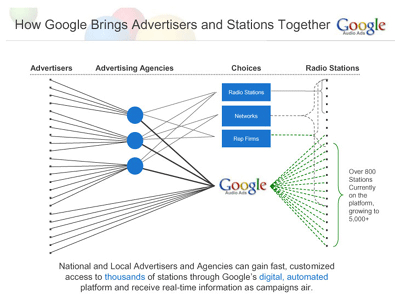Betsy Lazar –Executive Director of Advertising and Media Operations at GM– gave a keynote at the rcent Radio Advertising Bureau conference in Dallas. According to INSIDE RADIO, she was pretty specific in her advice to broadcasters;
“…doing business the old way won’t cut it. Pitching schedules of :30s won’t do it. What GM wants is ideas that show involvement by the station. Things that come from mining the listener database and exploiting the station website in fresh ways.”
Ad Age reports that GM “slashed ad spending by more than $600 million last year, a drop so stunning it should convince even the staunchest doubters that the age of mass-media marketing is going the way of the horse and buggy.”
In that same issue of INSIDE RADIO: Bank of America analyst Jonathan Jacoby admits his survey of 34 industry pros last week in Dallas is not statistically significant. But he says 43% of them (14-15 people) said they’ve “used or plan to use Google/dMarcto sell airtime.”

